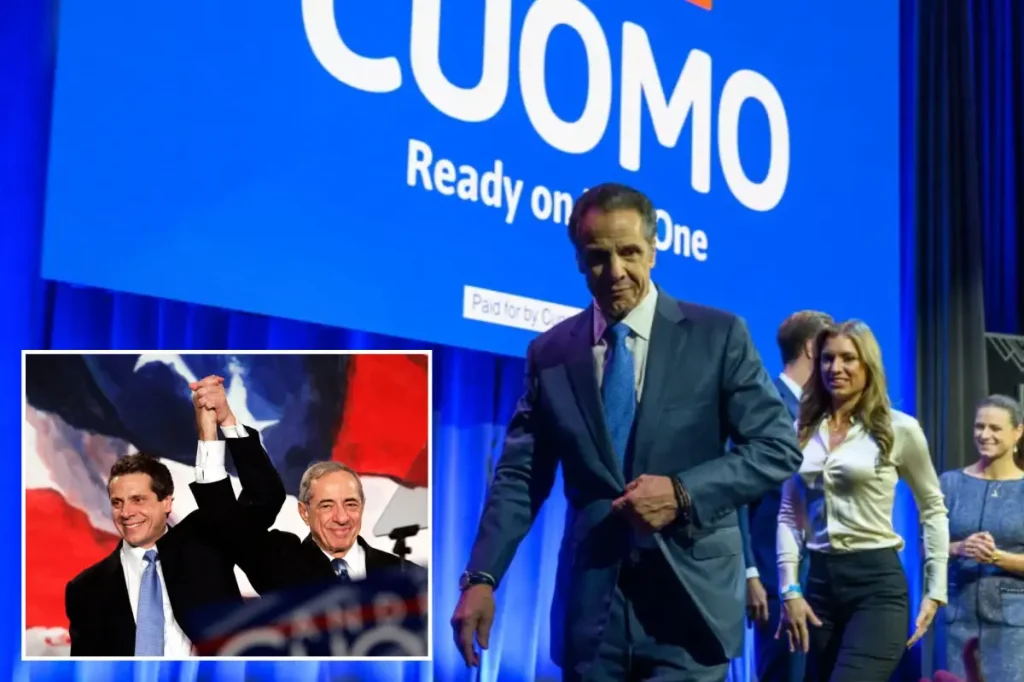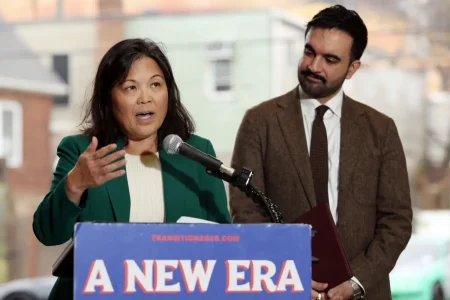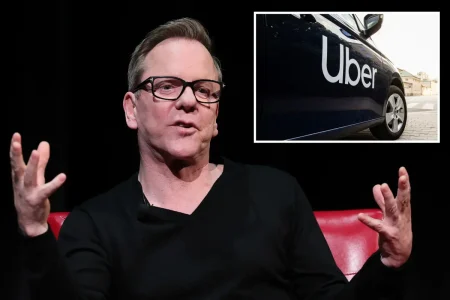The Fall of a Political Dynasty: Andrew Cuomo’s Failed Mayoral Bid
In a historic turn of events reminiscent of his family’s political past, Andrew Cuomo’s ambitious run for New York City mayor came to a definitive end Tuesday night in a lavish Midtown ballroom. The rejection by voters echoed history, mirroring his father Mario Cuomo’s defeat to Ed Koch nearly five decades ago. This electoral rebuff represents more than just a personal loss; it marks the potential conclusion of one of New York’s most influential political dynasties. Despite the 67-year-old former governor’s characteristic refusal to accept defeat, his second loss against socialist candidate Zohran Mamdani has seemingly relegated the once-formidable Cuomo to political irrelevance, raising questions about the changing landscape of Democratic politics in New York City and beyond.
During his concession speech, which may well have been his final significant political address, Cuomo framed his campaign as a battle for the soul of the Democratic Party rather than acknowledging his personal defeat. Without directly naming his opponent, he emphasized his support for law enforcement, declaring, “We will not make the NYPD the enemy,” and took a firm stance against discrimination, particularly antisemitism. He pointedly noted that almost half of New Yorkers did not vote for what he characterized as an unrealistic government agenda. The speech revealed Cuomo’s struggle to reconcile with the changing political currents that had swept him aside, positioning himself as a defender of traditional Democratic values even as voters clearly indicated their preference for a different direction under Mamdani’s leadership.
Cuomo’s political journey had been marked by remarkable heights followed by a spectacular fall. After rising through New York’s political ranks, he was elected governor in 2010 and ruled Albany with notorious authority until 2021, when a sexual harassment scandal forced his resignation amid impeachment threats—though he has consistently denied wrongdoing. Four years after this disgrace, sensing political opportunity in Mayor Adams’ collapsing re-election campaign, Cuomo attempted to orchestrate his comeback by entering the Democratic mayoral primary. However, his presumed path to victory was derailed when Mamdani unexpectedly defeated him in June. Undeterred by this clear voter rejection, Cuomo mounted an independent campaign that failed to generate authentic enthusiasm, instead drawing criticism and ridicule from across the political spectrum.
The campaign itself became an exercise in awkwardness that highlighted Cuomo’s disconnection from regular New Yorkers. His stilted PowerPoint presentations at the Sheraton hotel, artificial-looking AI videos, and unconvincing attempts to portray himself as relatable on social media became objects of derision rather than persuasion. Even his weekend trips to the Hamptons couldn’t convince voters to overlook his controversial legacy—the sexual harassment settlements that cost taxpayers millions, the COVID nursing home orders that resulted in numerous deaths among the elderly, and the abrupt closure of a corruption investigation that had approached his own office. His bare-bones public schedule revealed more time spent with donors than constituents, and his policy flip-flopping on issues like the closure of Rikers Island demonstrated that his campaign was driven more by political opportunity than by conviction.
In the final analysis, Cuomo’s defeat speaks volumes about the changing nature of New York City politics and voter expectations. Only a politician with Cuomo’s unique combination of deep unpopularity, extensive connections, and substantial campaign funds could have failed so dramatically against a relatively unknown opponent like Mamdani. Throughout his career and this final campaign, Cuomo consistently demonstrated that his primary commitment was to his own ambition rather than to public service or coherent political principles. Even the setting of his political demise seemed fitting—Manhattan’s Ziegfeld Ballroom, where his campaign made the unfortunate decision to place the Cuomo name above the urinals, an unintentional metaphor for how many voters had come to view his political brand.
Despite the definitive nature of this defeat, those familiar with Cuomo’s personality suspect that he may eventually attempt another political comeback. His well-established difficulty in accepting rejection suggests that New York voters have not seen the last of his political aspirations, even though his career appears thoroughly diminished. As he exits the immediate political stage, Cuomo leaves behind a complex legacy defined by both significant accomplishments and serious ethical failings—a cautionary tale about the dangers of prioritizing personal power over public trust. His defeat also signals a potential political realignment in New York City, as voters embrace candidates who represent a departure from the old-school political machinery that the Cuomo dynasty exemplified for decades. Whatever his future holds, this election has made clear that Andrew Cuomo’s brand of politics no longer resonates with the majority of New York City’s electorate.









